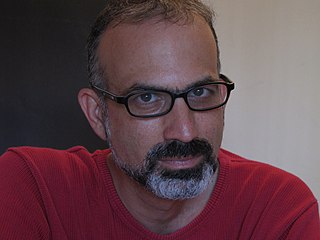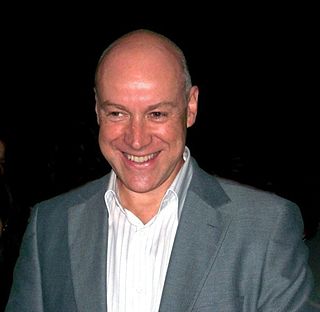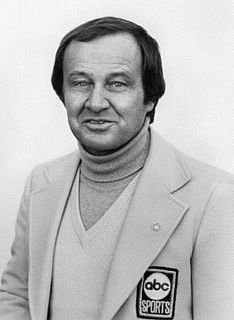A Quote by Arnon Goldfinger
Many people think making a film about history... about war... about the Holocaust, it might be heavy, dramatic and traumatic. I don't see things like that... you can find irony everywhere. It's how I look at life.
Related Quotes
Obviously I think it's really important to look back at your history, and that's why I think things like Pride are important. It's not necessarily about your experience of life, it's not about whether you find it difficult to be gay; it's about the fact that people have fought over hundreds of years for this to be okay, and also that there are many countries in the world where it's still not, and it's very dangerous to be gay.
To spend any time with someone who is among the top five film composers of the last 50 years is pure gold dust. I mean, not necessarily stylistically, because everyone is different in what their music sounds like, but the approach and how to look at a film, how to think about a film, how to decide what you want to do, how to think about characters, how to think about art, how to think about narrative, how to liaise with producers, how to liaise with directors.
One of the many things I love about working with Ryan Murphy is that you're always thin-sliced in this business. You walk into a room and people want you to be how you look or how you're perceived or whatever it is in that 10 minutes that hey meet you. I think Ryan [Murphy] has an intuition that looks a little bit deeper and sees things that other people might not see in you - sometimes you might not even see in yourself - but that he knows are there and that he might want to get to grow and stretch with as an actor.
One of the questions asked in that study was, How many Vietnamese casualties would you estimate that there were during the Vietnam war? The average response on the part of Americans today is about 100,000. The official figure is about two million. The actual figure is probably three to four million. The people who conducted the study raised an appropriate question: What would we think about German political culture if, when you asked people today how many Jews died in the Holocaust, they estimated about 300,000? What would that tell us about German political culture?
Why is it, that there's no movies, very little very little attention about the greatest Holocaust in the history of the world which was the Holocaust against Christians by the Soviet communism.And that's my point. We have a controlled media today that talks about the Holocaust, but they don't talk about the death and destruction of tens of millions of Christians...Which was a bigger Holocaust.
Irony is about contradictions that do not resolve into larger wholes, even dialectically, about the tension of holding incompatible things together because both or all are necessary and true. Irony is about humour an serious play. It is also a rhetorical strategy and a political method, one I would like to see more honoured within socialist-feminism.
Once we actually have the production script after many rewrites, at that point is when I start to decide what the look and colors will be. I work like a painter, even though I'm working in three dimensions. I'm working with chairs. I'm working with walls. But even things like the floor or the walls that people might think are not important, they actually do influence the visual look of the film. These are also things that I have to think about.
I think the play offers (white Americans) a different way to look at black Americans For instance, in 'Fences' they see a garbageman, a person they don't really look at, although they see a garbageman every day. By looking at Troy's life, white people find out that the content of this black garbageman's life is affected by the same things- love, honor, beauty, betrayal, duty. Recognizing that these things are as much part of his life as theirs can affect how they think about and deal with black people in their lives.






































